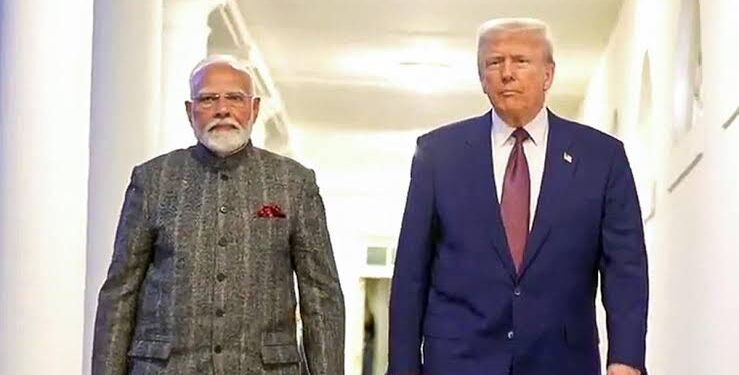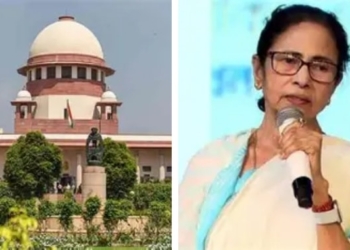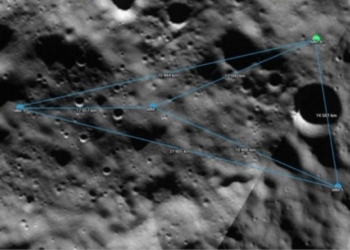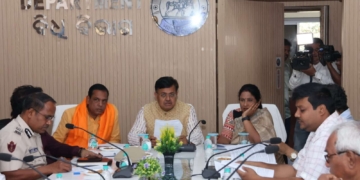U.S. President Donald Trump has ruled out the possibility of any trade negotiations with India until the ongoing tariff dispute is resolved, further escalating tensions between the two nations.
Responding to a reporter’s question at a White House event marking National Purple Heart Day, Trump said bluntly, “No, not until we get it resolved,” when asked if trade talks with India were expected following the imposition of sweeping tariffs.
This development comes just a day after the White House issued an executive order imposing an additional 25% tariff on Indian imports as a direct response to India’s continued oil trade with Russia. This penalty follows a previous 25% tariff, bringing the total tariff burden on Indian exports to 50%, with the second phase taking effect on August 27.
In a sharp statement, the U.S. administration accused India of undermining efforts to counter Russia’s war in Ukraine, claiming that “India’s subsequent reselling of this oil on the open market, often at significant profit, further enables the Russian Federation’s economy to fund its aggression.”
The move is part of a broader U.S. strategy to deter global support for Russia’s economy and penalize nations that, according to Washington, sustain Moscow’s military activities through continued energy imports.
PM Modi Responds: “India Will Never Compromise on Farmers’ Interests”
In a strong rebuttal, Prime Minister Narendra Modi reaffirmed India’s commitment to its agriculture and rural economy, even in the face of significant global economic pressure.
“For us, the interest of our farmers is our top priority,” Modi said on Thursday. “India will never compromise on the interests of farmers, fishermen, and dairy farmers. I know we will have to pay a heavy price for it, and I am ready for it. India is ready for it.”
This is being seen as a clear signal that India will not alter its energy policy or domestic subsidy programs to suit external demands, especially when the livelihoods of millions in the farm sector are at stake.
Political Fallout and Global Reactions
Back home, opposition leaders, including Shashi Tharoor, have called for a measured but firm retaliation by India, warning that the tariffs carry a “hidden message” and highlight a double standard, pointing to China’s continued oil imports from Russia without similar U.S. penalties.
Analysts believe that this could mark a significant turning point in India-U.S. trade relations and diplomatic ties, just as both countries have been positioning themselves as strategic allies in the Indo-Pacific.
The Indian government is expected to hold high-level discussions in the coming days to evaluate the economic implications of the U.S. decision and explore potential countermeasures.
This standoff, driven by geopolitical fault lines and domestic political calculations in both countries, underscores the growing complexities in the global trade environment—particularly as nations balance strategic autonomy with economic interdependence.





























